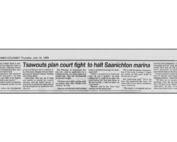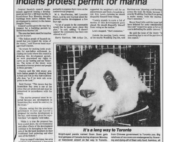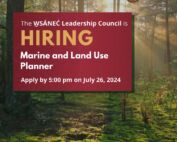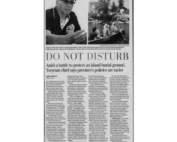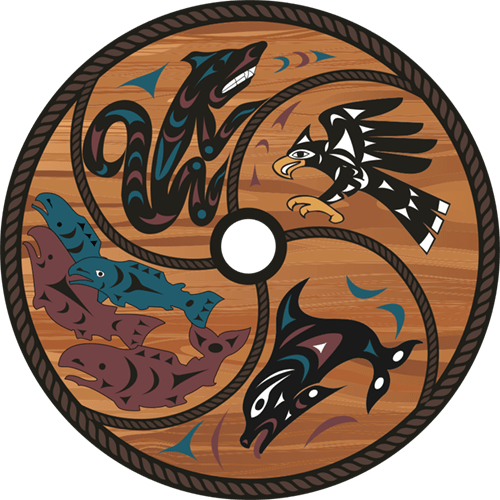Indigenous Management Board Collaborates to Protect Traditional Territory
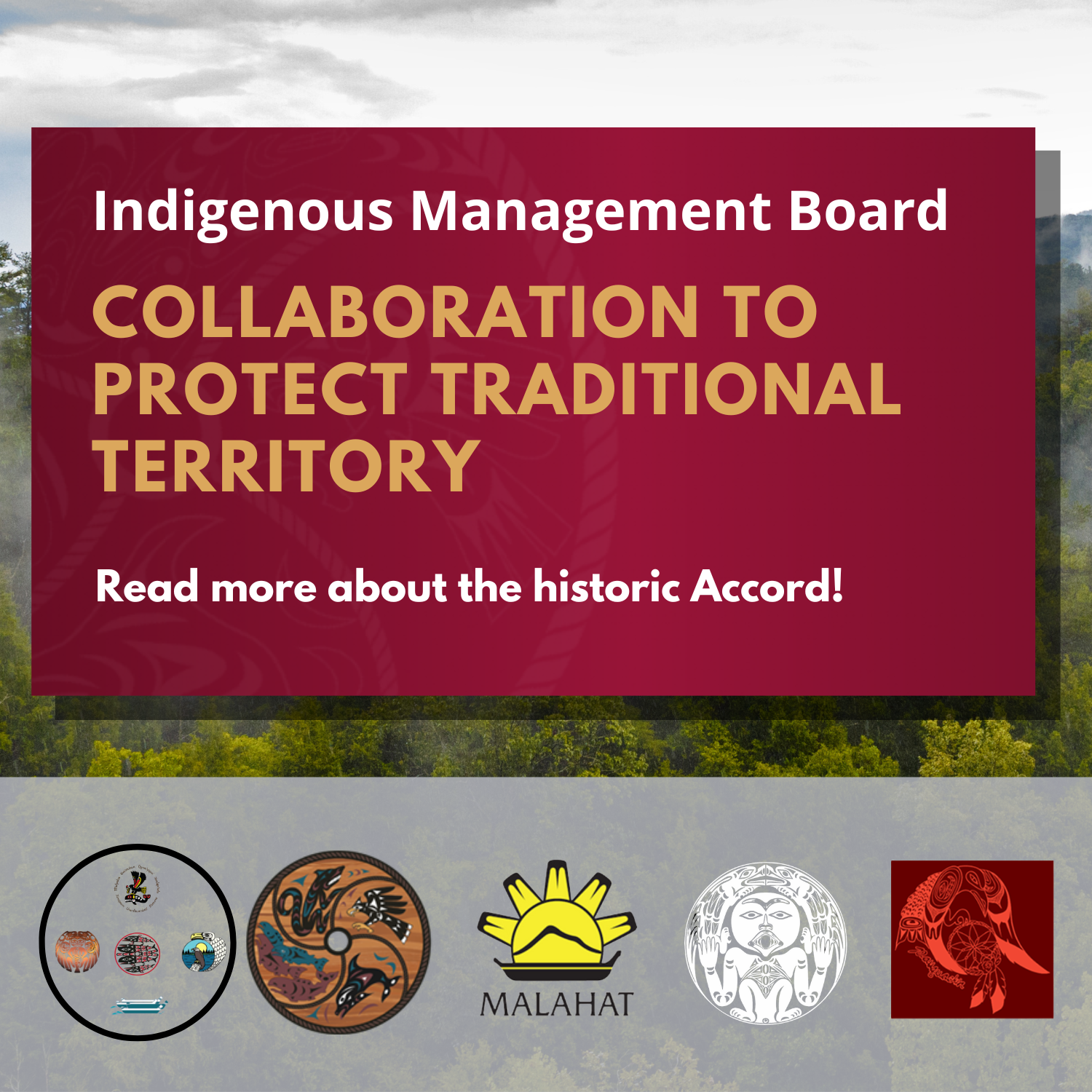
On November 27th, 2019, 11 First Nations, including the Tsartlip, Tseycum and Tsawout (under the umbrella of the WLC), Pauquachin, Malahat, Cowichan, Stz’uminus, Lyackson, Halalt, Snuneymuxw, and the Penelakut Tribe, came together to sign a historic Accord: the IEȽȻIȽTEL or Nuts’a maat kws ‘i’ shul’ hwilasmut tu Skwul ‘i’ kwthe’ Accord (“the Accord”).
The Accord was signed in response to the colonial government’s past failures to adequately consult with South Island Coast Salish communities regarding the Gulf Islands National Parks Reserve and more recently the National Marine Conservation Area Reserve proposed for the Southern Strait of Georgia, both areas where the Nations recognize they have shared interests.
The purpose of the Accord is for the First Nations Communities to work together to “take up and take back our roles, responsibilities and authorities over our territories and waters” and to address the projects affecting the traditional lands and waters of the eleven First Nations Communities.
The eleven First Nations Communities have agreed to work with NEȾOLṈEW̱ / Nutsa’ maat shqwaluwun (one heart, one mind) to reclaim the rights, title and responsibilities gifted by the Creator, including those recognised under the Douglas Treaties. This intention is reflected in the Accord’s full name; IEȽȻIȽTEL is the SENĆOŦEN word for “paddling together out at sea,” and Nuts’a maat kws ‘i’ shul’ hwilasmut tu Skwul ‘i’ kwthe’ is Hul’q’umi’num’ for “one whole group paddling together to look after the Gulf Islands.”
Historically, collaborations such as that created by the Accord have led to success in protecting Indigenous territories from harm. For example, during the Grace Islet controversy, First Nations united to protect ancestral burial grounds. In this example, and many others, the power arising from collaboration strengthens Indigenous worldview and authority over issues affecting traditional territories.
Collaboration is also an important way to recreate unity among the Coast Salish Indigenous community, something dramatically diminished by Indian Act Policies and the implementation of the reserve system.
In order to carry forward the work set out in the Accord, the eleven First Nations Communities established an Indigenous Management Board (IMB) and a supporting technical committee. The IMB is a First Nations only body (no Crown members) that is taking concrete steps to ensure that proposed NMCAR and management of the GINPR align with the values, goals and objectives of the First Nations and that First Nations are working towards management of the both the GINPR and the NMCAR.
The IMB is Informed by Community
The W̱SÁNEĆ Leadership Council held an engagement session on the work of the IMB for Community members on November 1, 2023 at the Tsawout Gym in Tsawout First Nation. The session provided an opportunity to discuss several important issues with the greater community, such as the motivation for creating the IMB, what the IMB is doing to maintain and protect sacred waters and lands, and actions IMB is taking as it reviews and develops proposals for the eleven First Nations’ consideration in relation to oceans and parks management including the proposed NMCAR and the GINPR.
The engagement session was very well-attended. Youth, leadership, and elders enjoyed good food and stimulating conversation, and this engagement session is just one of many successful events planned for the future.
On January 26th and 27th the IMB held 2 days of visioning sessions following up on a previous visioning session held in 2023. The purpose of these sessions was for members and leadership from all eleven First Nations Communities to come together in one place to hear from elders, knowledge keepers, and community members to help shape the priorities, strategic actions and direction of IMB work. IMB leadership and technical staff were present to listen and the sessions were well attended with strong participation from across the member First Nations. IMB is now working on a report documenting what was shared in this session. It will be available shortly.
To stay current on the IMB and other work on behalf of the WLC, please sign up for the WLC newsletter below.



